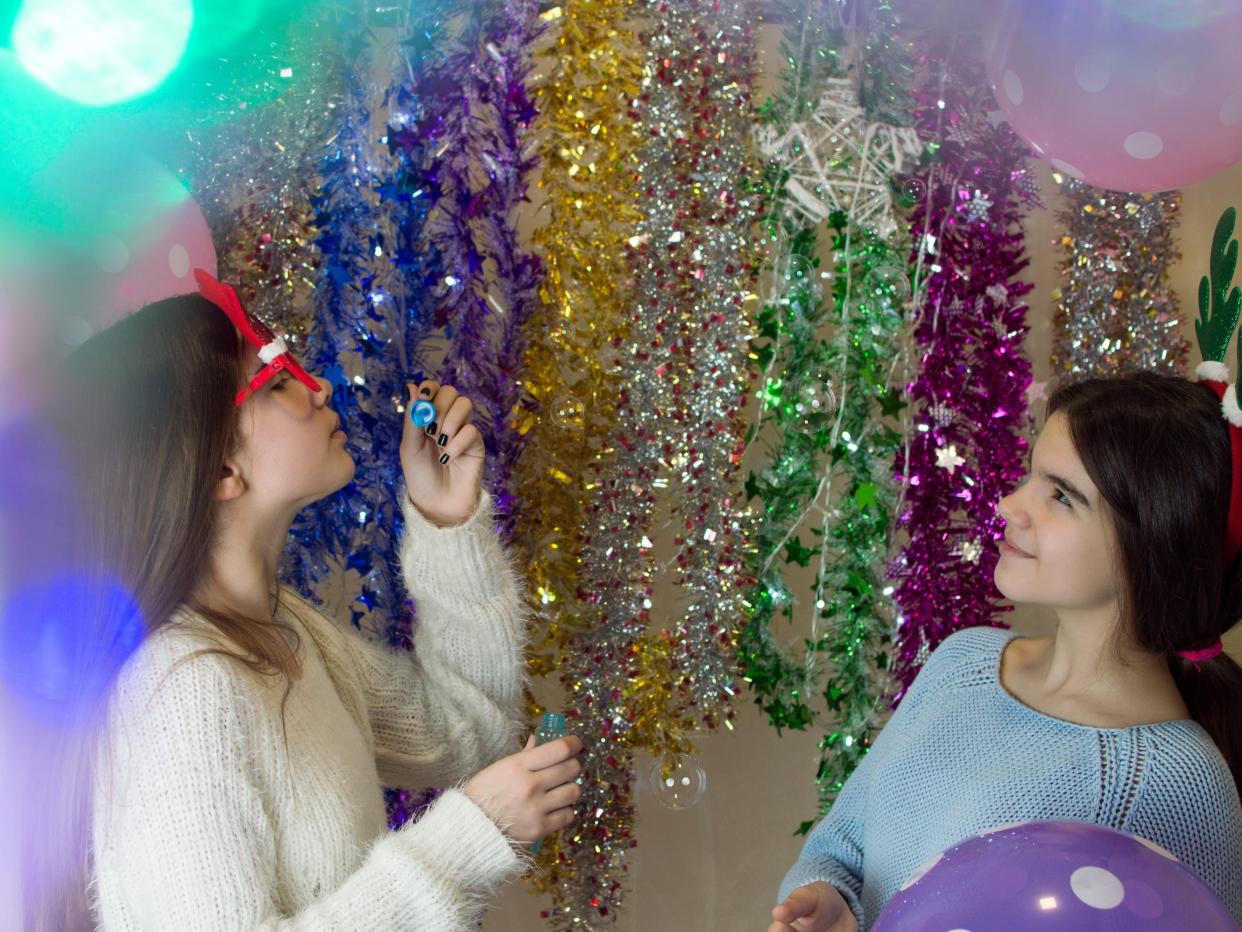My 13-year-old has been attached to her phone since she got it. I was surprised to see her happily leave it behind for a school dance.

My daughter got a cell phone for Christmas last year, and she is attached to it.
Her school said no phones were allowed for their 7th grade dance, and she was fine with it.
I was excited for her to have a night without phones, but also worried about how she'd reach me.
Parents, teachers, and school administrators know teens are tethered to their phones. After our middle school daughter received hers for Christmas last year, we saw only the top of her head for months.
That's why it was surprising to see her willingly, without hesitation, leave her beloved phone on the kitchen counter when she attended a middle school dance recently. But she knew the school policy — phones aren't allowed. And if she brought it, she'd have to hand it in upon entry anyway, so why bother? I knew the pickup time and she knew she could borrow an adult's phone or use the school phone to call me if need be.
So, dressed up in a baby blue summer dress with her favorite pearl earrings (and dressed down in Nike Blazers — because she's 13), my daughter bounced off excitedly to spend a couple of hours with her girlfriends, dancing and belting out lyrics to Taylor Swift and Olivia Rodrigo hits.
She said it was the best night ever
And she did. She danced every song all night and came home breathless and happy, declaring the dance "the best night ever."
Upon returning home, she immediately resumed normal activity and started texting and SnapChatting her friends. But between 7 and 9 that night, there was just laughter, music, and dancing — and no one had phones in their hands.
No phones equals real, authentic fun for kids
As a parent navigating a digital world that seems light-years away from the one we grew up in, I love this policy. I love that, for two hours, kids who chose to attend the dance were living in the moment, looking at each other's faces, and having real, authentic fun — not manufactured, filtered fun suitable for Snapchat or TikTok.
I love that my teenage daughter had that feeling of magical joy that doesn't happen very often — the kind you feel in the deepest part of your chest, the kind you remember for a lifetime. I can remember having that kind of fun at 13, dancing with my friends, screaming and singing "I'm Every Woman" by Whitney Houston, never imagining a world where we'd each have a tiny computer in our hands.
She could still reach me if needed
I shared about this policy on social media and was met with quite a bit of praise for our school administration. But the comments were also flooded with criticisms, specifically related to kids not being able to contact their parents if there was an emergency like a shooter or if they were being bullied, harassed, or felt sick and wanted to leave.
For the second set of critical comments, that's an easy solution. Kids who hand their phones in can ask for them back if they're leaving and then use them to call for a ride. They can also ask to borrow an adult's phone or use the school phone.
As for the gun violence issue, however, I see their point. I live in fear of my children facing an active shooter situation every single day.
It's a balancing act — raising kids in the digital world and also in a nation plagued with gun violence. I want my child to have these authentic, core memories — like I did as a kid. But I also know that our world isn't the same world I grew up in.
An evening without phones is worth the risk
I want my 13-year-old to enjoy being 13. I want her to feel free and untethered from a tiny computer in her hand. And sometimes, I want her to feel free and untethered from me.
That means sometimes she leaves her phone at home. And that she'll have to face whatever is going to happen around her without it, without me, for two hours so that she can lose herself in her favorite song. So that she can hold hands with her besties and sing "Getaway Car" at the top of her lungs. So that she can come home and tell me that she just had "the best night ever" — even if (or, perhaps especially because) none of her dance memories exist online, but instead, are just a memory in her mind and in her heart.
Read the original article on Business Insider


